One of the coolest things about Stranger Things is seeing the similarities between the show's villains and the antagonists presented by the Dungeons & Dragons adventures.
In the fourth season, I noticed that the character Henry Creel is not only obsessed with spiders, but also makes a drawing that refers to the goddess Llolth from D&D in a notebook (I even believe that we will still see some antagonist inspired by this character in the next season of the series, but I won't go into details).
About Tiamat in Stranger Things
In this text, I will discuss a possible reference to another drawing, made by Will, the one that Eleven asks to be done and that features the group of teenagers fighting a three-headed dragon.
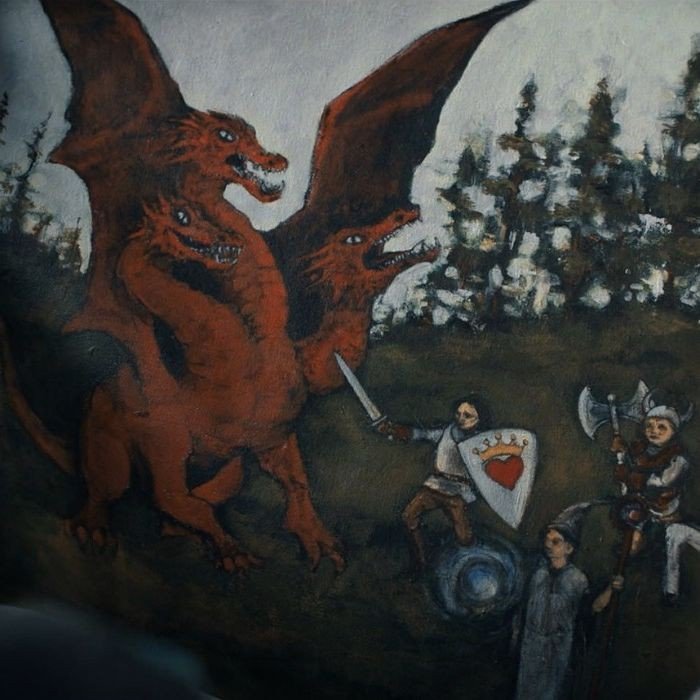
Yes, I will talk about Tiamat.
Most likely you know her from the 1980 Dungeons & Dragons cartoon, and the first thing I need to say is that despite the male dub of the character, she identifies with the female gender in the RPG since its creation in 1975.
Tiamat's origin in D&D
In the book, "Supplement I: Greyhawk" the dragons gained two regents, who would later become the two main deities of their pantheon: a platinum dragon, king of dragons with lawful and neutral alignments, while the chromatic dragons would have the “queen of chaotic dragons”. If you don't know what alignments are, I suggest you read a text about them by clicking here.
In 1985, the "Dragonlance" trilogy, originally published between 1984 and 1986, brought a scenario in which dragons would have their own religion, so the platinum dragon king was named Paladine and the queen of chaotic dragons, the name of Tahkisis. According to Wizards of the Coast, these characters would be the deities Bahamut and Tiamat, respectively, but with different names. It is precisely from this moment that Tiamat came to be considered not a simple monster, but a deity within the Dungeons & Dragons multiverse. (see hyperlink).
Yes, in the D&D game we have a multiverse formed by several different worlds or scenarios that are being built to encompass the different narrative possibilities and fantasy genres. While Greyhawk's setting was a little darker, Forgotten Realms has a world that is extremely rich in magic. In Dragonlance, several clichés of the swashbuckling genre and in Ravenloft, horror narratives.
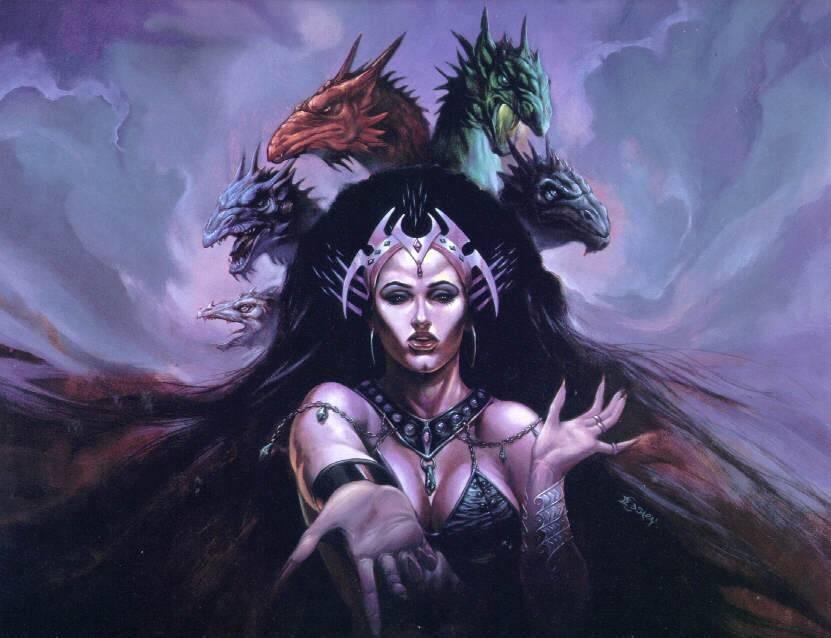
Let us return to Tiamat. This evil deity manifests as a dragon with 5 heads, each with a different color (black, blue, green, red and white) representing each of the chromatic dragons. In D&D, chromatic dragons have evil alignments, while metallic dragons (brass, copper, bronze, silver, and gold) have benign alignments.
Canonically, there are several explanations for the birth of the goddess Tiamat. One of these versions is a myth existing in the Forgotten Realms setting.
According to this myth, Asgorath (a kind of primordial dragon mother) created the world of this setting, and after fighting another primordial deity, was split in two, generating Tiamat and Bahamut (Adventurers' Guide to the Sword Coast, p. 111).
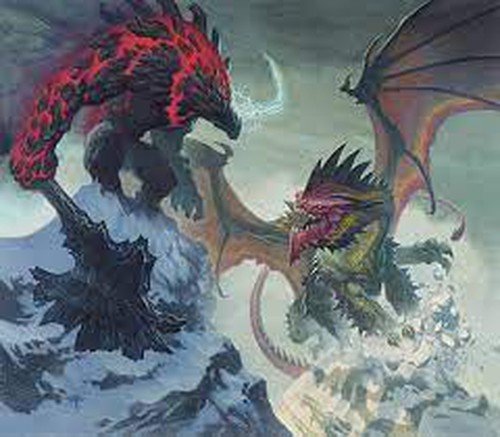
Another of these myths, associated with red dragons, claims that the explosion of a "Crystal Sun" was responsible for the death of Asgorath, and that from his blood-red dragons sprang (a metaphor for Tiamat according to monks of Candlekeep). One of these dragons that did not mourn the death of its creator, would have cut itself letting its blood fall on Toril (name of the world where the stories of the Forgotten Realms scenario take place) generating the life existing in that world, and another dragon called "The Renegade"- that would be Bahamut (Draconomicon, 1990, p.1-2). This myth shows a face of Tiamat that refers to Will's drawing.
Tiamat in Stranger Things: why people defend she is in the series
Although we have several myths about Tiamat's birth, they all refer to the fact that she was exiled to a dark corner of the multiverse after suffering a defeat. This dark corner would be the first layer of the Nine Hells, where she is imprisoned as punishment for having murdered an ancient deity of the giants during the first years of Toril's existence, which would necessitate the use of a complex magical ritual to summon it to the material plane (see “Elegy of the first world” in the prologue of the book “Fizban’s treasury of the dragons” and “Mordekeinen tome of foes” p. 11).
Those who consider Tiamat to be the possible villain of the next season of Stranger Things, associate her inability with leaving her prison with the need for the portals opened by Henry Creel/Vecna in the series.
Tiamat in Stranger Things: why she wouldn't be in the series
Finally, if you want to disregard Tiamat as the inspiration for a protagonist in the Stranger Things series, I recommend you to read D&D's “Out of the Abyss” campaign.
The following paragraph contains plot revelations: In this campaign, players must deal with the Demogorgon's presence on the material plane. As the campaign progresses, players discover that the goddess Llolth, in order to increase her hold on the plane of the Abyss, has driven the Demogorgon from her realm. About Tiamat, I recommend consulting the “Rise of Tiamat” campaign, which I still want to play.
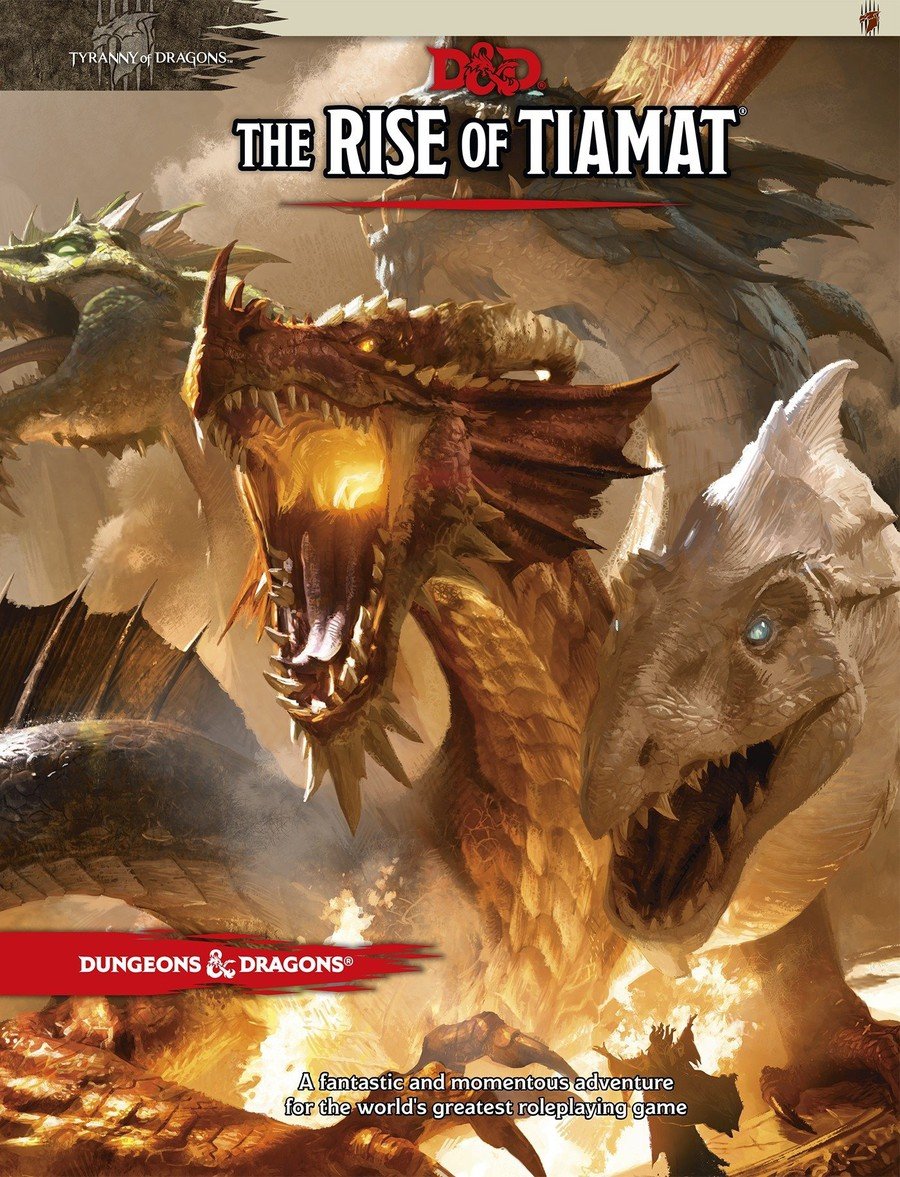
If you arrived here and would like to know more about what inspired the creation of the villain Henry Creel, or about Satanic Panic, I suggest you read this article.

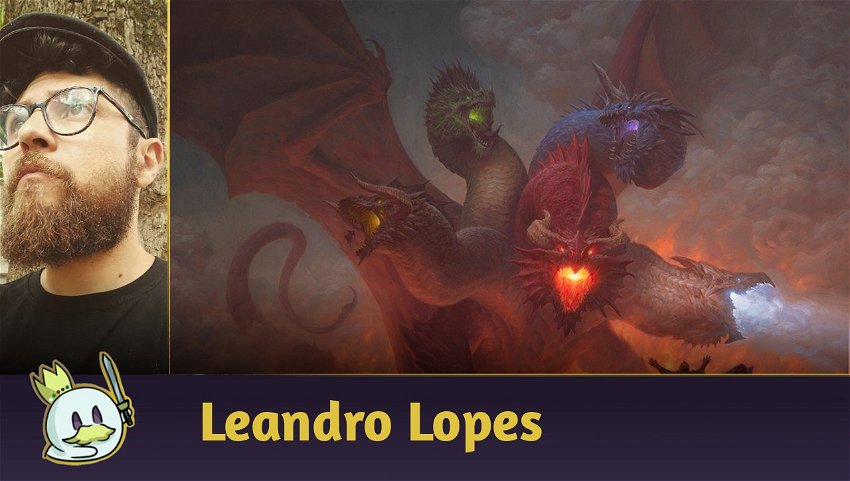







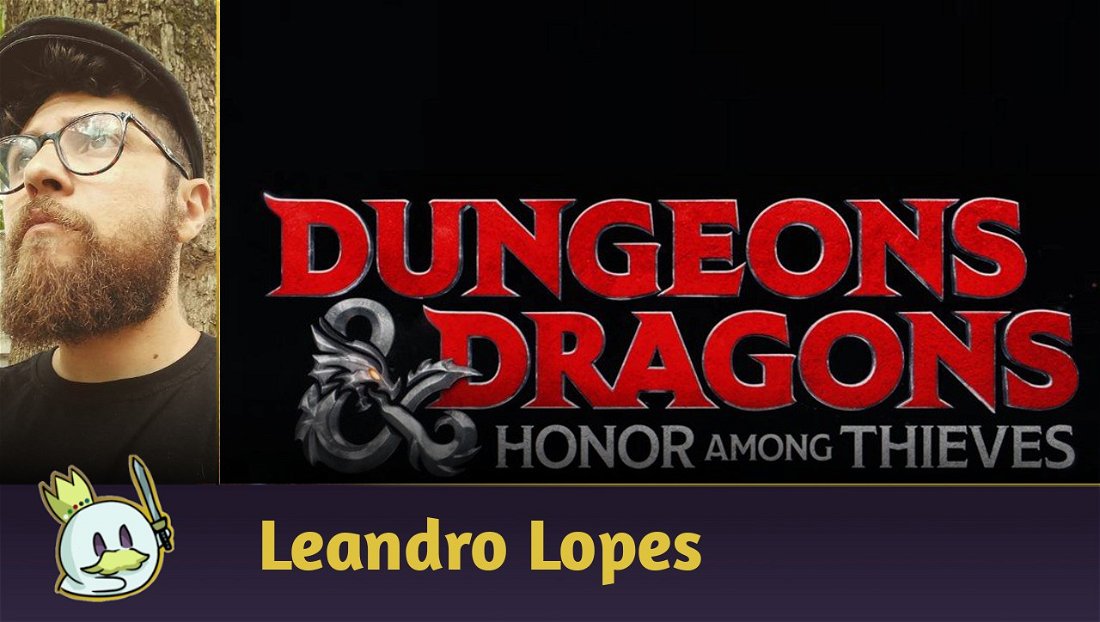
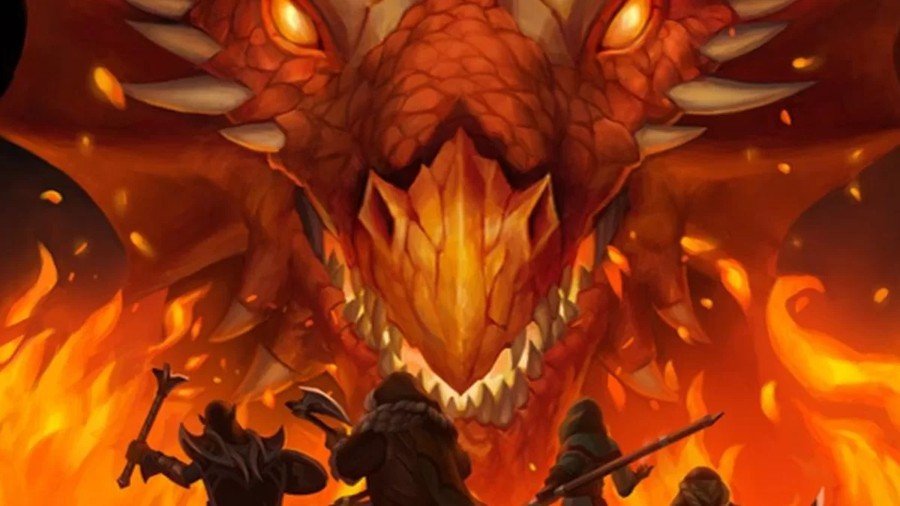



— تعليقات 0
, ردود الفعل 1
كن أول من يعلق